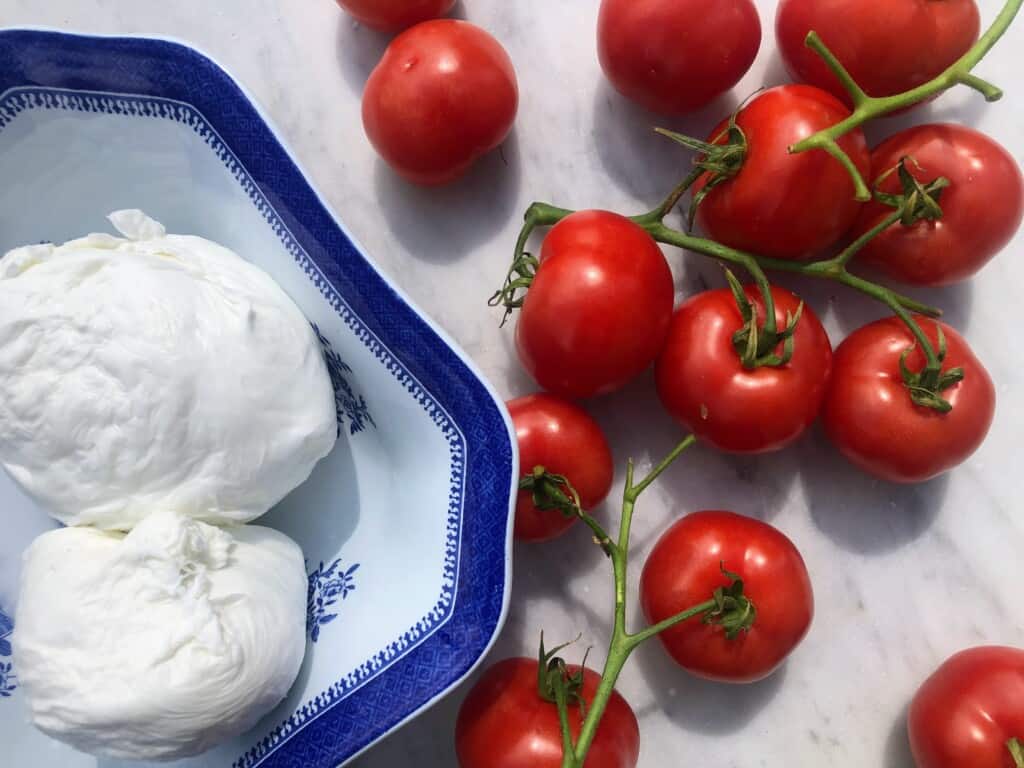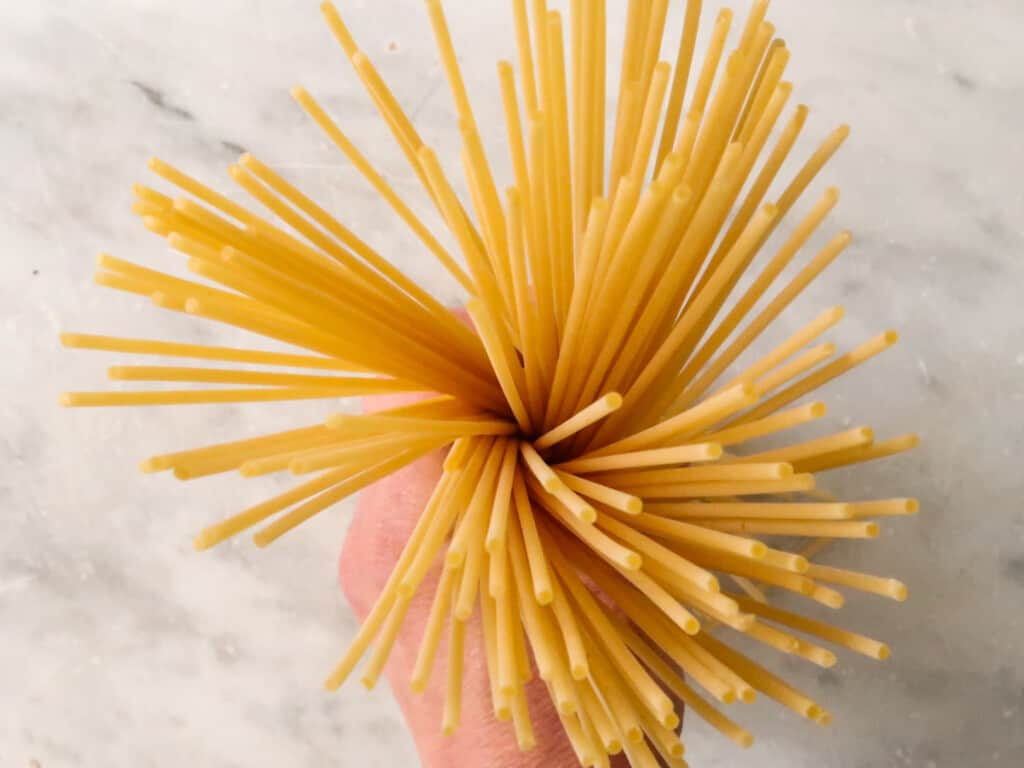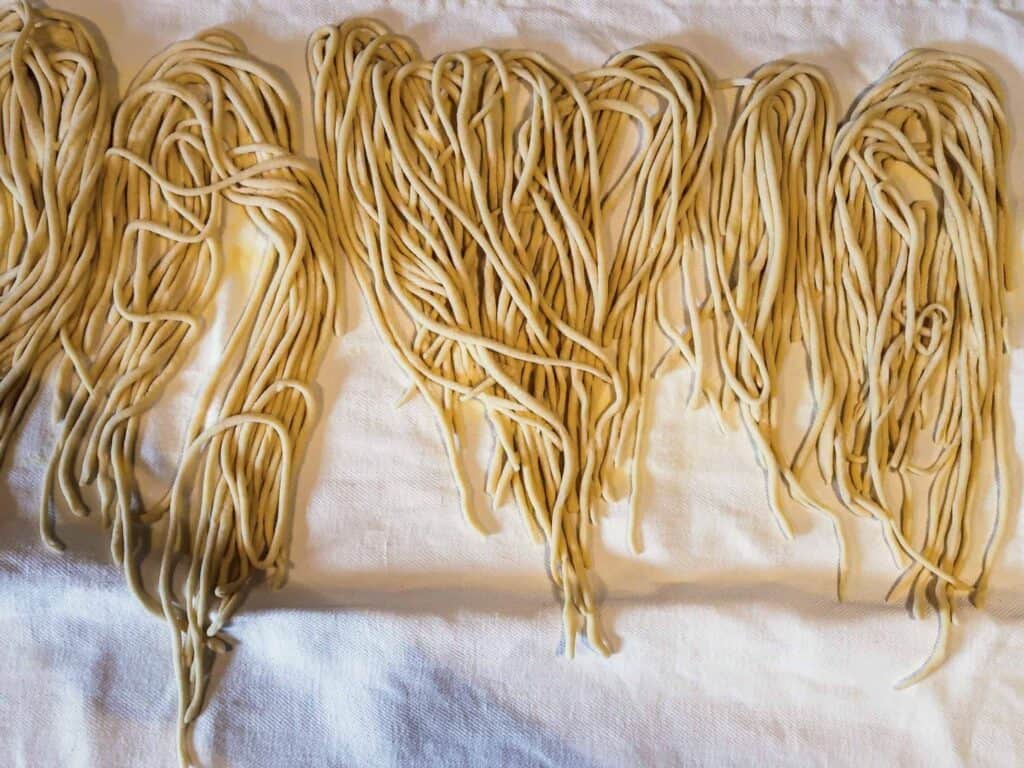Last updated on March 10th, 2024
If you’ve looked at the price per liter of extra virgin olive oil, you know it’s pretty expensive.
You would never treat your cashmere sweater or new pair of suede shoes poorly, so why do the same with your olive oil?
It’s important to store your olive oil properly!
Olive oil is liquid gold and here in Tuscany we treat it just so. Let’s go through the best practices to keep olive oil as good for as long as possible. I’ll explain:
- why olive oil should be stored properly
- how to store olive oil properly
- how long olive oil should last
- what you can do with old oil
- how to freeze oil
- my family’s tips and tricks for keeping olive oil at its best
Note: In this article I am talking about olive oil in general, including lesser quality olive oils that you might use for cooking and the very best of extra-virgin olive oils that you are saving for drizzling.
Jump to Section
Reasons To Store Olive Oil Properly
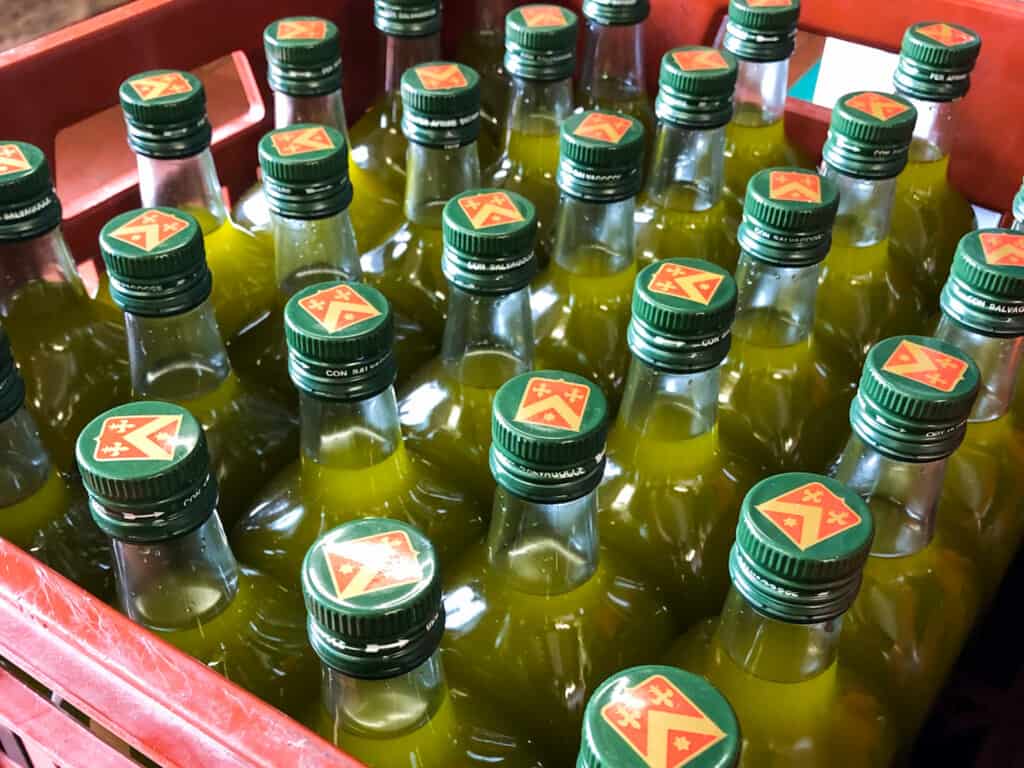
Olive oil is literally the juice pressed from the olives so like any other fruit juice, it can go rancid if not stored correctly.
- Maintain the health benefits of olive oil
- Keep the flavor as genuine to the original taste upon opening your bottle
- Make the olive oil last longer
How Long Does Olive Oil Last?

Olive oil does not improve with age. It deteriorates rapidly in the first couple of days, reaches a steady, good flavor for about a year and then starts to deteriorate. As it gets older, the chemical composition breaks down, acidity increases, aroma decreases and flavor dramatically changes for the worst.
How long your olive oil is going to last really depends on the specific olive oil but here in Italy we generally consider olive oil good for one year from the harvest date.
Good To Know: Olive oil that is older than a year will not harm you and can be used for other purposes such as cooking. For drizzling and raw use, stick to olive oil that is a year or younger.
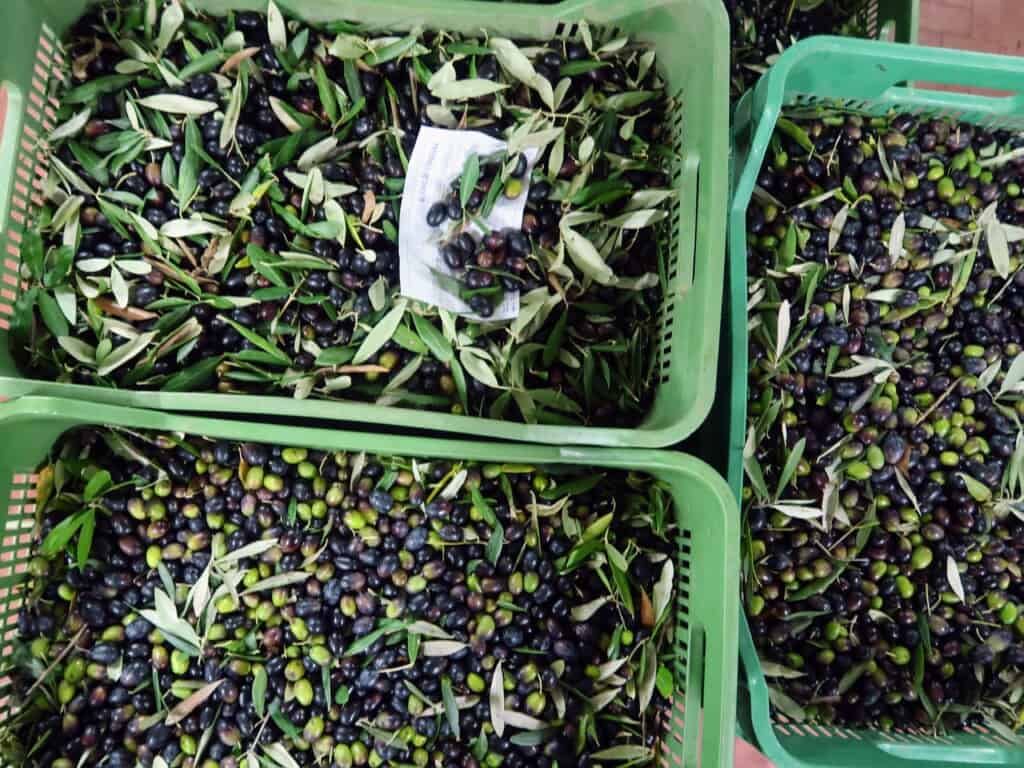
Factors that will affect the shelf life of olive oil:
- Maturity of the olives at harvest
- Quality of the fruit used to make the olive oil
- Regional factors and conditions
- The harvesting method
- How the olives were cared for during their life
These factors are out of your control, but by storing olive oil properly, you can help to maintain the flavor and aroma of olive oil, not to mention the health benefits.
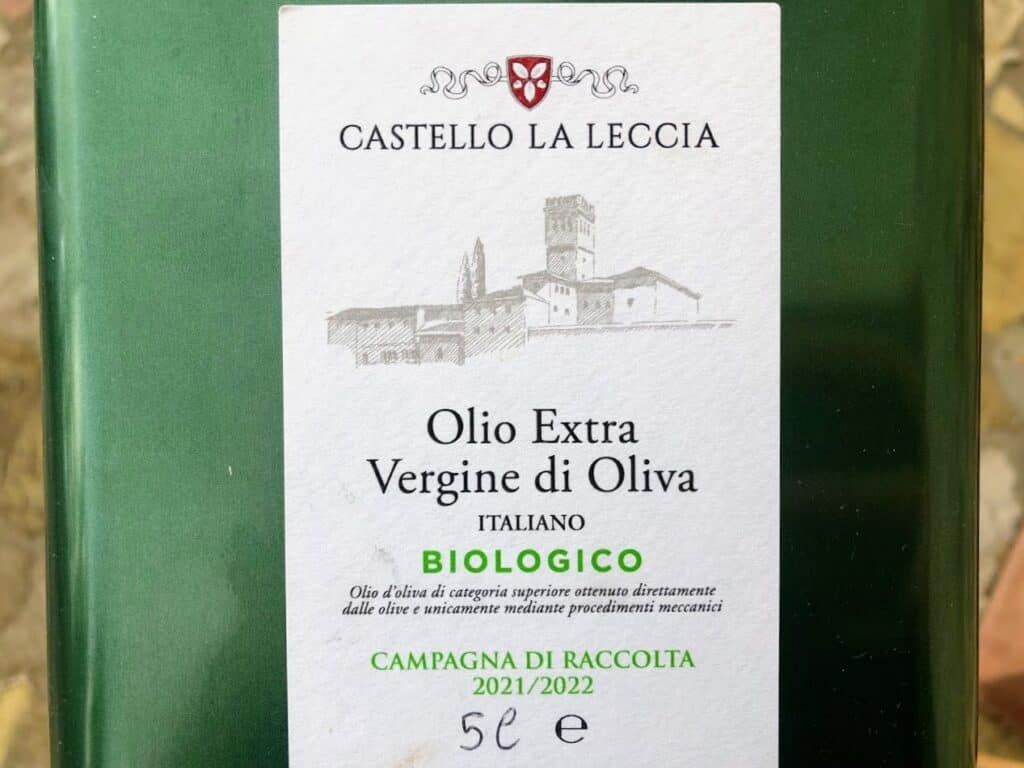
Buying Tip: When purchasing olive oil, look for a harvest date on the bottle. You want to be as close to this as possible and avoid any olive oil harvested over a year ago.
Upon opening your bottle of olive oil, I suggest you use it within a year. This is because the moment the olive oil is subject to oxygen, the deterioration is suddenly accelerated.
Fact: Lower grade olive oils usually deteriorate faster than higher quality extra virgin olive oils or other olive oils.
Tips For Buying Olive Oil:
15 Best Italian Olive Oils – To Enjoy in Italy & Bring Home as a Souvenir
Best Italian Olive Oil Brands in America – Where to Buy Them and How to Store Them
Heading to Florence? Olive oil is one of my Favorite Food Souvenirs from Florence.
How To Use Olive Oil After A Year
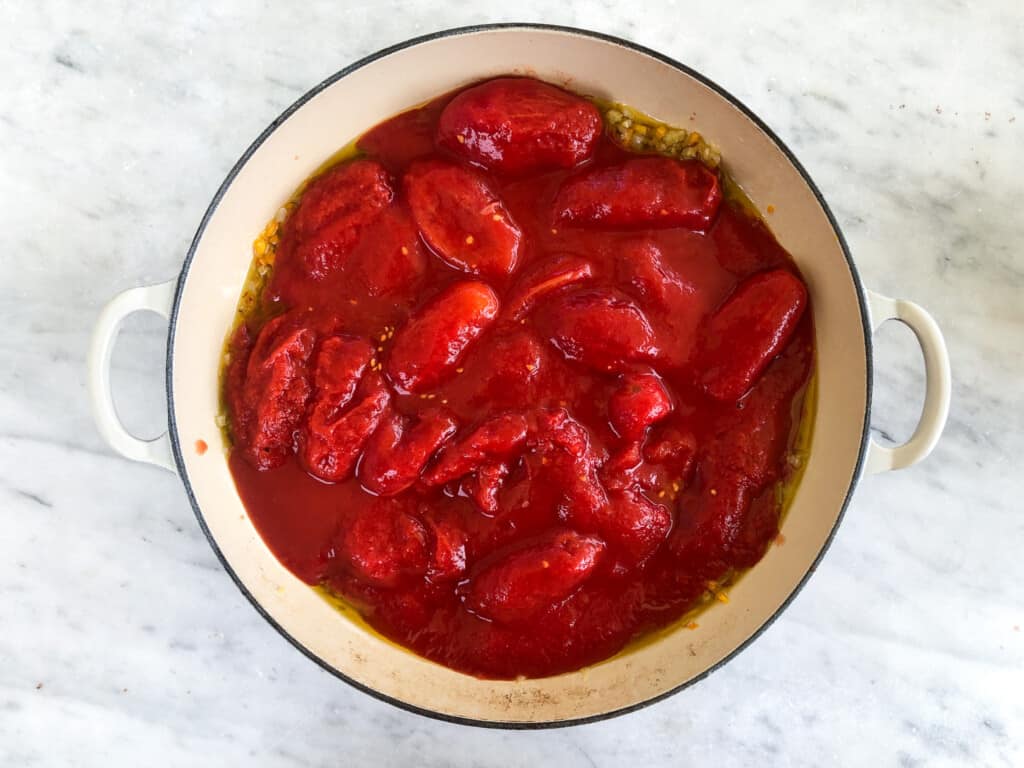
In our house, we use olive oil that is from the previous year’s harvest for cooking. We save this year’s olive oil for raw consumption (salads, dressings, raw sauces, drizzling, etc.).
You can absolutely cook with olive oil that has lost its fruity, rich flavor. In this way, you are not throwing away your oil yet you don’t need to feel guilty about using flavorful oil in cooking where its flavor tends to get lost.
Cooking With Olive Oil: To learn how we use our olive oil here in Italy, read 20+ Ways Italians Use Their Extra Virgin Olive Oil + When They Don’t.
How To Tell If Oil Has Gone Bad
Give it a good old sniff. If it smells fruity and sweet, you are good to go. If it has a dusty smell like crayons or old peanuts then it has gone rancid.
Olive oil that has gone bad will not make you sick. It might not taste as you wish but don’t worry, you aren’t sentencing yourself to a hospital visit or a night bent over the toilet.
Three Main Enemies Of Olive Oil

If you don’t do anything else when storing your olive oil, know that these are the three most dangerous elements to our dear liquid gold.
- Heat
Heat is the number one factor that will significantly and rapidly change the properties within olive oil, affect the overall aroma and fruity taste of the olive oil.
- Oxygen
When olive oil is exposed to air and thus, oxygen, it starts to degrade in terms of flavor, aroma and in health benefits. Not only do the antioxidants in the olive oil start to decline but the oxygen will break down the chemical composition as a whole.
- Light
What makes olive oil so good for you are the polyphenols and monounsaturated fats within the olive oil. When olive oil is exposed to light, these start to break down, significantly reducing the health benefits of olive oil.
How To Store Olive Oil Correctly
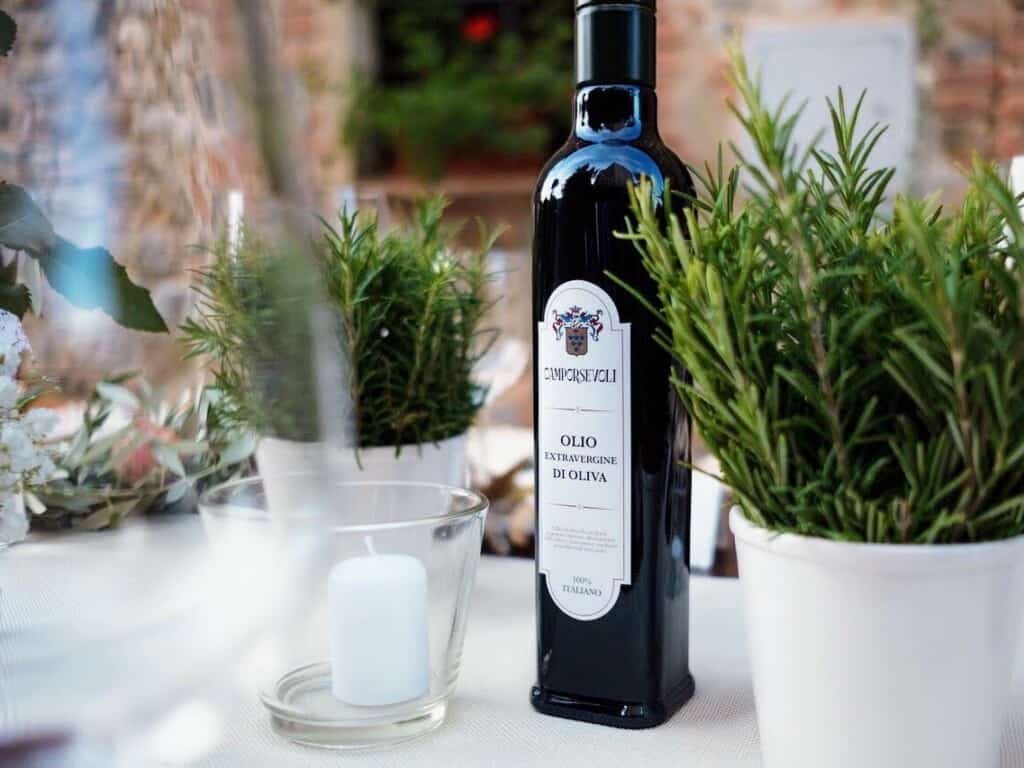
For the best storage of your olive oil, keep it in a cool, dry spot away from sunlight.
While some people like to keep their olive oil in the fridge, our family opts for storing our olive oil at room temperature but in a very controlled environment, which I will outline below.
How To Store Olive Oil At Room Temperature
The ideal temperature for storing olive oil is between 55°F and 60°F, with 57° being the magic number. Of course, you can certainly keep it out of this range and it’s not going to go rancid. Most room temperatures hover between 65°F-70°F but if you keep it in the correct vessel and away from the stove, you are already a step ahead.
If your kitchen is typically warmer than 70°F, then I would suggest storing your olive oil in a garage, in the back of a dark cabinet away from appliances or in a dark pantry.
If you have a very cold kitchen, perhaps in the winter, you might notice little white specks floating in the olive oil, which is just solidification. This is not bad and will not harm the olive oil.
Fact: Olive oil will solidify at 36°F and will become cloudy if kept at temperatures below 50°F. This is not harmful to your health or olive oil itself.
How To Store Olive Oil In The Correct Vessel

One of the best things you can do to extend the shelf life of olive oil is to keep it in the correct container or vessel. The best containers are dark glass, ceramic, porcelain or stainless steel.
Our family uses a stainless steel olive oil dispenser. It works well because it’s dark, which keeps out the light and has a top that keeps oxygen out.
Another option I like to use in a ceramic cruet but be sure it has a cork top or other secure lid to keep oxygen out. What is really nice about the ceramic cruet is that it also helps to keep out the heat.
Olive Oil Containers to Avoid
- Reactive metals: iron and copper, for example, react with the oil, compromising flavor and quality.
- Any form of plastic containers: chemicals can infuse into the olive oil
- Clear glass: lets in light
Store Olive Oil Sealed Properly
It’s really important to not only pick the correct dispenser for your olive oil but also be sure it’s closed well after every use.
If you have purchased olive oil in a bottle that also works as a dispenser (it’s dark glass, for example), be sure you close it well every time!
If you have opted to transfer the olive oil to another dispenser, be sure it has a corked top or other closed lid, ensuring that it’s not constantly exposed to the open-air.
Store Olive Oil Away From Heat
How many of you keep your olive oil next to the stove? It’s the logical spot for it because it’s at arm’s reach when you need it. BUT this is a big no-no!
One of the most important tips for storing olive oil is to keep it away from heat, i.e. the stovetop and oven! We all know how convenient it is to keep olive oil next to the stovetop but you are literally throwing away your quality olive oil when you do this.
Other Potential Heat Sources To Avoid
- Toaster ovens
- Toasters
- Microwaves
- Windows: windows magnify light and heat, making them a terrible spot to store olive oil
- Dishwashers: don’t choose a cabinet that is close to your dishwasher because it will give off heat.
- Dryers: If you choose to keep your olive oil in a dark closet or garage, be sure it’s not next to your dryer that will produce a ton of heat!
- Other cabinets close to ovens: don’t store olive oil in cabinets adjacent to the oven.
Store Olive Oil Away From Light
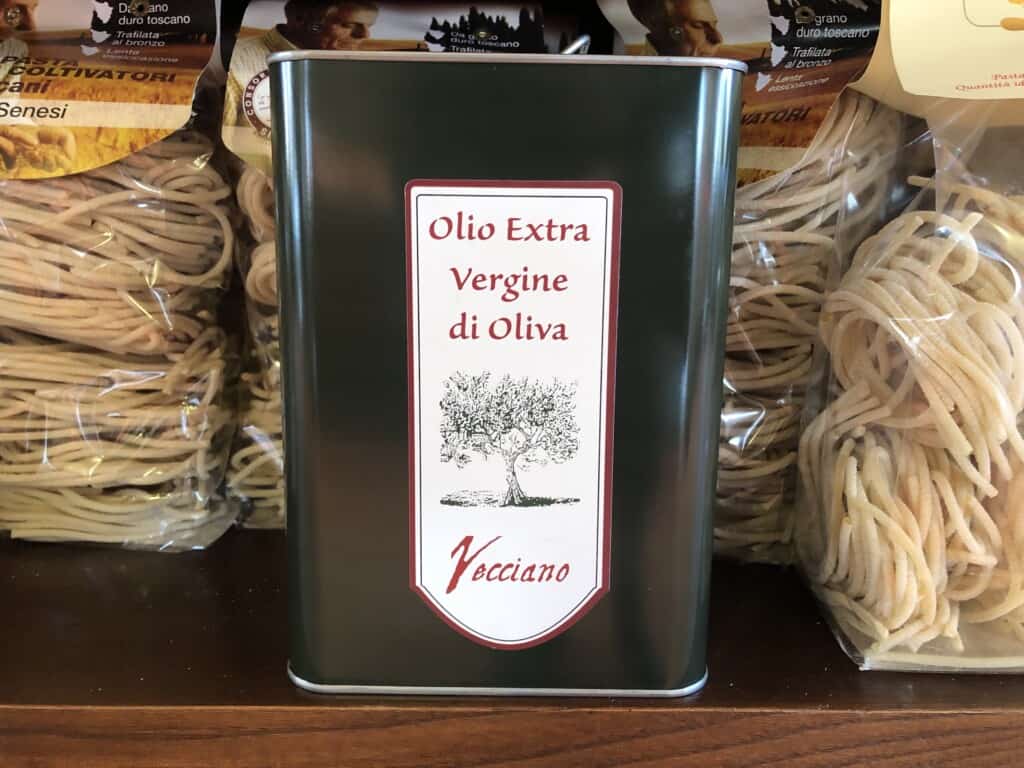
Keep olive oil away from light. This means not only choosing a dark, cloudy or opaque container but also keeping it away from bright areas such as windows and doors. We live in an ancient farmhouse in Tuscany so we don’t have many windows but if you live in a very bright house, be sure to invest in a ceramic dispenser and keep it in a cabinet.
How To Store Flavored Olive Oil

How you store your flavored olive oil, hot pepper or truffle, for example, will depend on the type of flavor that was added. There is no steadfast rule for storing flavored oils so it’s best to read the label and look for any specific instructions about refrigeration to extend the shelf life and preserve the flavor.
Try It: Learn how to make rosemary infused olive oil.
Can You Store Olive Oil In The Refrigerator?
Some like to store olive oil in the refrigerator because they claim it extends the shelf life. If you are using a low quality, run of the mill olive oil, this is fine, it won’t really affect the flavor because there isn’t much flavor to begin with!
If, however, we are talking about an extra virgin olive oil or high quality olive oil, I do not recommend storing it in the refrigerator because it starts to break down the properties within the olive oil that contribute to good health.
Cold temperatures of the refrigerator can alter the chemical composition of the olive oil, which will in turn, affect both taste and smell.
How To Freeze Olive Oil
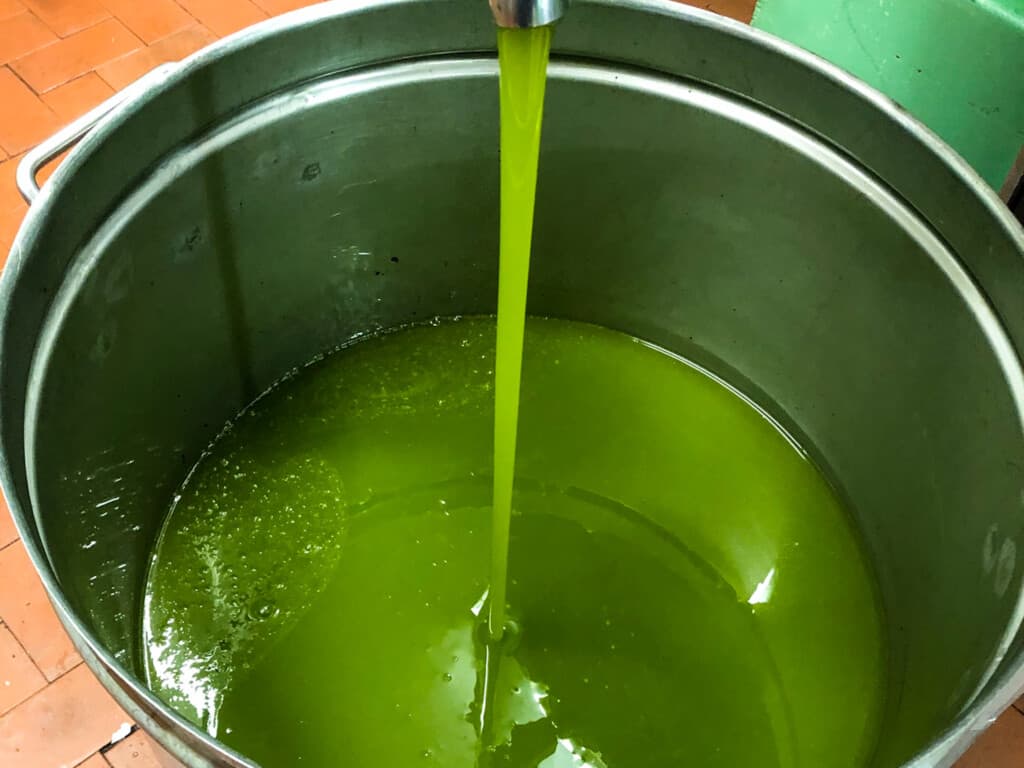
If you have ever been to Italy around the olive harvest time, then you know how sacred it is to Italians. Not only is it economically important for the country but it’s also a ritual among Italians to partake in the olive harvest, pressing and bottling of the olive oil.
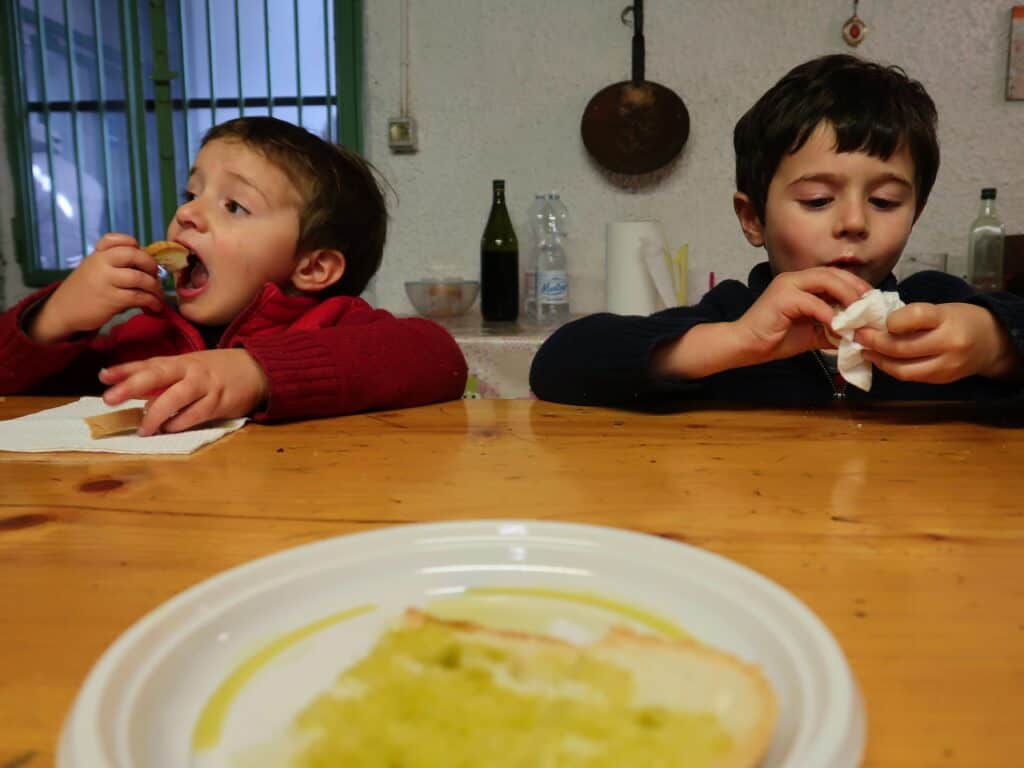
Using New Olive Oil: If you are in Italy during the fall, try and get your hands on some olio nuovo and make fettunta, which is the absolute best way to taste and enjoy new olive oil.
But did you know that freshly pressed olive oil is bright green, quite spicy and considered a delicacy in Italy? Unfortunately, this type of olio nuovo or new oil only lasts a couple of days and after that, it starts to ‘blossom’ with different flavors and aromas.
One way to maintain this olio nuovo or bright green olive oil is to freeze it in small quantities. This immediately stops the oil from blossoming. In this way, Italians can enjoy their spicey, bright green olive oil a couple times during the year.
Good To Know: If for some reason you are going away and can’t use up your olive oil within the allotted time, you can freeze it in small quantities. This isn’t ideal because freezing oil does affect its composition but it’s better than either throwing it out or using it for cooking.
Tip: You can also use oil to freeze herbs. Read about How to Freeze Basil in Olive Oil and How to Freeze Parsley in Olive Oil.
Tips On How To Store Olive Oil

- Use up the olive oil quickly. Don’t be too picky about ‘special occasions’ because before you know it a year will have passed and you have only used a drizzle.
- Clean out the olive oil storage vessel from time to time. I honestly don’t do this every time I fill it up again but some people swear by it. Here in Italy, I can assure you the 90 year old nonne (grandma’s) are not scrubbing their olive oil dispenser everytime they fill it up!
- Buy in small quantities, if possible.
How To Store Olive Oil FAQ
Keep olive oil away from direct light, heat and closed from outside air. Preferably, keep it in a dark container in a cool storage area away from windows.
After opening a bottle of olive oil, you should use it within one year’s time, as long as it’s that year’s olive oil. Check the label for a harvest date to be sure.
Olive oil that has not been opened will typically last about a year before the flavor and aroma start to change. Always check the harvest date and once the bottle is opened, use it as quickly as possible.
Olive oil doesn’t really expire, per say, but it does tend to change significantly in terms of taste, aroma and health benefits. Try to get olive oil from that year’s harvest, not from the prior year. Keep in mind that lower grade olive oils usually deteriorate faster than higher quality extra virgin olive oils..
You can check to see if olive oil has gone bad with a good old sniff test. If it smells like crayons, old peanuts or metallic in any way, it’s not going to be very good to use.
Consuming expired olive oil is not going to harm you but it is unlikely to carry any health benefits because over time, the chemical composition of olive oil deteriorates.
If you find yourself with olive oil that is over a year old, you can use it as a moisturizer, for your hair or even to remove cradle cap on babies.

